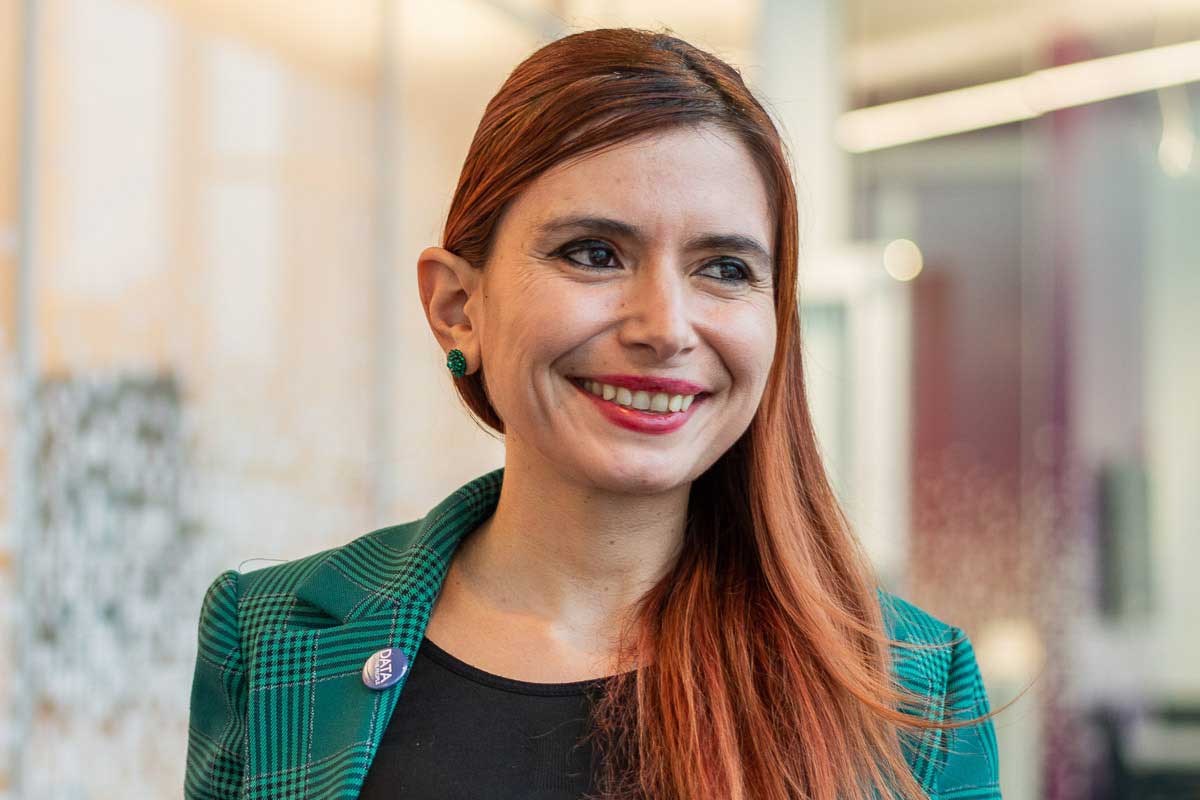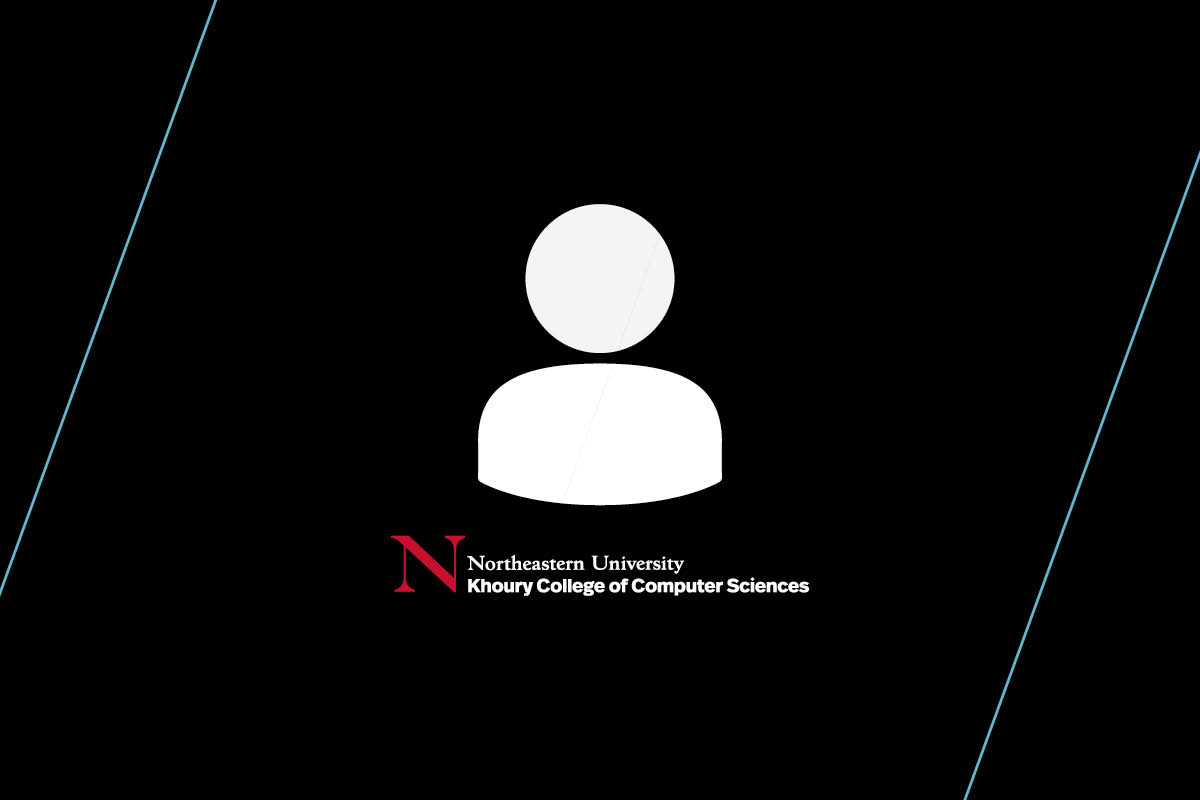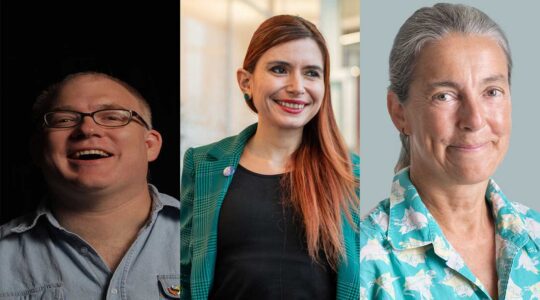Saiph Savage
(she/her/hers)
Assistant Professor

Research interests
- Artificial intelligence
- Human–computer interaction
- Data science
- Network science
- Machine learning
Education
- PhD in Computer Science; University of California, Santa Barbara
- MA in Computer Science; University of California, Santa Barbara
- BA in Computer Engineering, Universidad Nacional Autónoma de México — Mexico
Biography
Saiph Savage is an assistant professor and director of the Civic AI Lab in the Khoury College of Computer Sciences at Northeastern University, based in Boston.
Savage's research focuses on creating intelligent civic technology to organize collective action for change, which includes battling misinformation and empowering gig and rural works to access better jobs. Much of this work focuses on expanding real-world applications of AI and human-centered design. To that end, Savage has collaborated with federal and local governments, and has penned high-level policy briefs within the Federation of American Scientists’ accelerator program.
At Khoury College, Savage teaches human-centered AI, global UX, human–computer interaction, and social computing. Her students have obtained fellowships and internships in industry and academia, including at Facebook, Twitch, Microsoft, X, and the Oxford Internet Institute.
Before joining Northeastern in 2021, Savage was a tech worker at Intel Labs and Microsoft Bing, and a crowd research worker at Stanford. She has taught or directed at West Virginia University, Carnegie Mellon University, and the University of Washington, focusing on human–computer interaction or human-centered design each time.
Savage has published in ACM CHI and CSCW, AAAI ICWSM and HCOMP, and the Web Conference; the BBC, The Economist, and the New York Times have covered her work. She is a recipient of grants from the UN and NSF, the Google Anita Borg Scholarship, and MIT Technology Review’s “35 Innovators Under 35” honor. She is also a fellow at the Center for Democracy and Technology, a technical advisor for Mexico’s Ministry of Foreign Affairs, and a member of ACM SIGCHI’s Latin America Committee.
Labs and groups
Projects
-
A.I. to Empower Displaced Rural Workers
Lead PI: Saiph Savage -
Human Centered A.I. for Federal Governments
Lead PI: Saiph Savage -
Reputation Agent: Tools to Help Digital Workers Earn More and Create Fairer Workspaces
Lead PI: Saiph Savage
Recent publications
-
Data Enrichment Work and AI Labor in Latin America and the Caribbean
Citation: Gianna Williams, Maya De Los Santos, Alexandra To, Saiph Savage. (2025). Data Enrichment Work and AI Labor in Latin America and the Caribbean CoRR, abs/2501.06981. https://doi.org/10.48550/arXiv.2501.06981 -
A Culturally-Aware AI Tool for Crowdworkers: Leveraging Chronemics to Support Diverse Work Styles
Citation: Carlos Toxtli, Christopher Curtis, Saiph Savage. (2024). A Culturally-Aware AI Tool for Crowdworkers: Leveraging Chronemics to Support Diverse Work Styles Proc. ACM Hum. Comput. Interact., 8, 1-34. https://doi.org/10.1145/3686899 -
Designing Gig Worker Sousveillance Tools
Citation: Kimberly Do, Maya De Los Santos, Michael Muller, Saiph Savage. (2024). Designing Gig Worker Sousveillance Tools CHI, 384:1-384:19. https://doi.org/10.1145/3613904.3642614 -
Unveiling AI-Driven Collective Action for a Worker-Centric Future
Citation: Saiph Savage. (2024). Unveiling AI-Driven Collective Action for a Worker-Centric Future WSDM, 6-7. https://doi.org/10.1145/3616855.3637633 -
Remote Possibilities: Where there is a WIL, is there a Way? AI Education for Remote Learners in a New Era of Work-Integrated-Learning
Citation: Derek Jacoby, Saiph Savage, Yvonne Coady. (2024). Remote Possibilities: Where there is a WIL, is there a Way? AI Education for Remote Learners in a New Era of Work-Integrated-Learning CoRR, abs/2402.12667. https://doi.org/10.48550/arXiv.2402.12667 -
Why Do We Need to Learn about Citational Practices? Recognizing Knowledge Production from the Global Souths and Beyond
Citation: Amy Ogan, Frederick M. C. van Amstel, Gabriela Molina León, Juan Fernando Maestre, Kristin Williams, Nicola J. Bidwell, Pedro Reynolds-Cuéllar, Saiph Savage, Sushil K. Oswal, Vishal Sharma. (2023). Why Do We Need to Learn about Citational Practices? Recognizing Knowledge Production from the Global Souths and Beyond XRDS, 29, 12-17. https://doi.org/10.1145/3589256 -
4th Crowd Science Workshop – CANDLE: Collaboration of Humans and Learning Algorithms for Data Labeling
Citation: Dmitry Ustalov, Saiph Savage, Niels van Berkel, Yang Liu. (2023). 4th Crowd Science Workshop - CANDLE: Collaboration of Humans and Learning Algorithms for Data Labeling WSDM, 1268. https://doi.org/10.1145/3539597.3572703 -
Datavoidant: An AI System for Addressing Political Data Voids on Social Media
Citation: Claudia Flores-Saviaga, Shangbin Feng, Saiph Savage. (2022). Datavoidant: An AI System for Addressing Political Data Voids on Social Media Proc. ACM Hum. Comput. Interact., 6, 1-29. https://doi.org/10.1145/3555616 -
The Global Care Ecosystems of 3D Printed Assistive Devices
Citation: Saiph Savage, Claudia Flores-Saviaga, Rachel Rodney, Liliana Savage, Jon Schull, Jennifer Mankoff. (2022). The Global Care Ecosystems of 3D Printed Assistive Devices ACM Trans. Access. Comput., 15, 31:1-31:29. https://doi.org/10.1145/3537676 -
REGROW: Reimagining Global Crowdsourcing for Better Human-AI Collaboration
Citation: Andy Alorwu, Saiph Savage, Niels van Berkel, Dmitry Ustalov, Alexey Drutsa, Jonas Oppenlaender, Oliver Bates, Danula Hettiachchi, Ujwal Gadiraju, Jorge Gonçalves , Simo Hosio. (2022). REGROW: Reimagining Global Crowdsourcing for Better Human-AI Collaboration CHI Extended Abstracts, 88:1-88:7. https://doi.org/10.1145/3491101.3503725 -
Quantifying the Invisible Labor in Crowd Work
Citation: Carlos Toxtli, Siddharth Suri, and Saiph Savage. 2021. Quantifying the Invisible Labor in Crowd Work. Proc. ACM Hum.-Comput. Interact. 5, CSCW2, Article 319 (October 2021), 26 pages. DOI:https://doi.org/10.1145/3476060 -
Meta-Gig: Empowering Anyone to Create Crowd Marketplaces
Citation: TOXTLI, Carlos; SAVAGE, Saiph. Meta-Gig: Empowering anyone to create crowd marketplaces. Avances en Interacción Humano-Computadora, [S.l.], n. 1, p. 11-19, nov. 2020. ISSN 2594-2352. Available at: . Date accessed: 09 nov. 2021. doi: http://dx.doi.org/10.47756/aihc.y5i1.62. -
TurkScanner: Predicting the Hourly Wage of Microtasks
Citation: Susumu Saito, Chun-Wei Chiang, Saiph Savage, Teppei Nakano, Tetsunori Kobayashi, Jeffrey P. Bigham. (2019). TurkScanner: Predicting the Hourly Wage of Microtasks WWW, 3187-3193. https://doi.org/10.1145/3308558.3313716
Related news
Current PhD students
Previous PhD students
-

Claudia Flores-Saviaga
-

Carlos Toxtli-Hernandez


